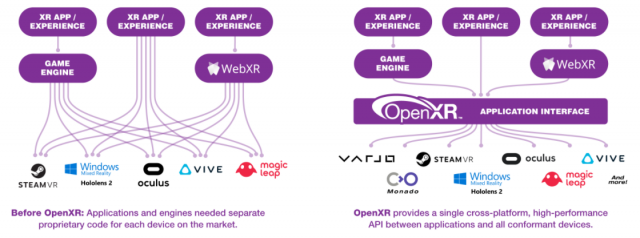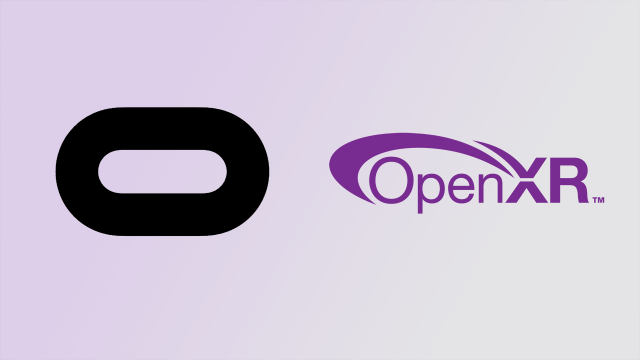Oculus is making hard shift away from its proprietary developer APIs in favor of OpenXR, an industry-backed project that aims to standardize the development of VR and AR applications. As of the latest SDK update, the company says OpenXR will become “the preferred API for all new applications going forward.”
Oculus announced this month that it plans to begin deprecating the existing Oculus Mobile and Oculus PC SDK in favor of OpenXR.
OpenXR is a royalty-free standard that aims to standardize the development of VR and AR applications, making for a more interoperable ecosystem. The standard has been in development since April 2017 and is supported by virtually every major hardware, platform, and engine company in the VR industry, including key AR players.


OpenXR has seen a slow but steady rollout since reaching version ‘1.0’ in 2019; this new announcement from Oculus is sure to hasten the pace significantly.
The move begins with the v31 SDK update, in which Oculus is shifting to OpenXR as the “preferred API for all new applications going forward.” According to Oculus, that means only its OpenXR SDK will receive “full support” (like QA testing, bug fixes, and up-to-date documentation). New developer features, like the recently announced passthrough API, will be delivered only through OpenXR extensions from this point forward.
Applications built with the older Oculus Mobile and Oculus PC SDKs will of course continue to work on existing headsets, but starting on August 31st, Oculus is downgrading those SDKs to “compatibility support” only, which means limited QA testing, only critical bug fixing, and no new developer features.
One year after, on August 31st, 2022, Oculus will require that new applications be built with OpenXR, and the Oculus Mobile and Oculus PC SDKs will move to “unsupported” status.
Even after that date, older applications built with the Oculus Mobile and Oculus PC SDKs will continue to work on existing headsets, but Oculus is pushing hard to get all new applications built with OpenXR.
While both Unity and Unreal Engine—the two most commonly used tools for building VR applications—offer some degree of support for OpenXR, neither have shifted to OpenXR as the default for building new VR applications.
In Unity, OpenXR support is still considered “experimental.” Oculus expects that the Unity OpenXR plugin won’t be “fully supported” until early 2022, at which point it will become the recommended option for building VR applications.
As for Unreal Engine, Oculus plans to make an OpenXR backend plugin the default in the v32 release of the Oculus SDK, and expects “full support” for OpenXR in Unreal Engine with the release of Unreal Engine 5 (expected in early 2022). Once UE5 gets is full release, Oculus says that new VR projects for Oculus headsets built with UE5 will be required to use OpenXR.

